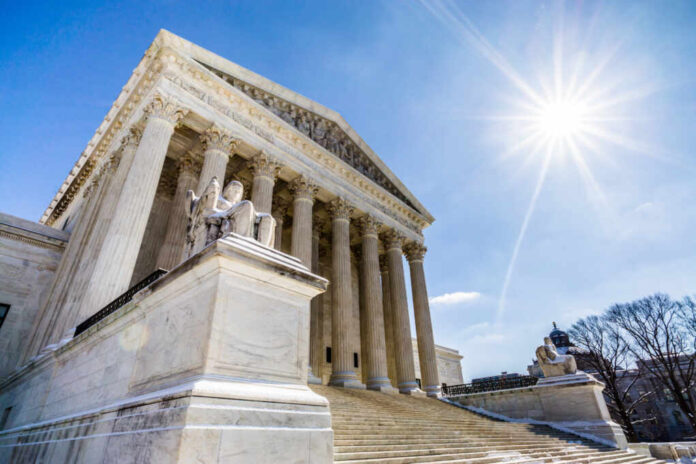
The Supreme Court agreed Wednesday to allow former President Donald Trump to bring his case for review after lawyers for the 2024 Republican Party frontrunner appealed U.S. special counsel Jack Smith’s election subversion case against him, arguing that Trump cannot be prosecuted in this case based on presidential immunity.
In addition to adding the appeal to its docket, the Supreme Court expedited the case and will hear arguments from each side on April 22. The move at the nation’s high court is a victory for Trump, who appeared there earlier in the month to argue the former president’s eligibility to run for federal office under the 14th Amendment after a series of state challenges.
With the Trump immunity case being accepted by SCOTUS & what’s happening in Georgia, Trump may well have pulled the inside straight he needed to beat these cases. NY is a joke. GA is dying/severely delayed. FL ain’t happening b/4 Nov. And now, neither is J6 DC case. Incredible.
— Megyn Kelly (@megynkelly) February 29, 2024
“If the prosecution of a President is upheld, such prosecutions will recur and become increasingly common, ushering in destructive cycles of recrimination,” the Trump appeal read. “Criminal prosecution, with its greater stigma and more severe penalties, imposes a far greater ‘personal vulnerability’ on the President than any civil penalty.”
“The threat of future criminal prosecution by a politically opposed Administration will overshadow every future President’s official acts — especially the most politically controversial decisions,” the document added.
In SCOTUS appeal Trump's legal team argues:
"If the prosecution of a President is upheld, such prosecutions will recur and become increasingly common, ushering in destructive cycles of recrimination. Criminal prosecution, with its greater stigma and more severe penalties,… pic.twitter.com/ldiIVRKtfN
— Bad Hombre (@joma_gc) February 12, 2024
“The surprise is that it took the court the better part of two weeks to reach this result, from which no justice has publicly dissented,” said Steve Vladeck, CNN Supreme Court analyst and professor at the University of Texas School of Law. “The justices couldn’t reach consensus on a way to resolve the matter without giving it full briefing and argument.”
“It’s hard to read any tea leaves into whether that makes the court more likely to side with [Trump] when it finally resolves his immunity claim, but it certainly means that, even in the worst-case scenario for Trump, the January 6 prosecution will be delayed for at least another 3-5 months. That’s a pretty big win for Trump even if he ends up losing this case,” he added.
Randall Eliason, a former U.S. prosecutor who teaches at George Washington University Law School, told NBC News, “My best guess is that they don’t want to leave the impression that there’s never any presidential immunity under any circumstances and they want to write something more nuanced.”


















